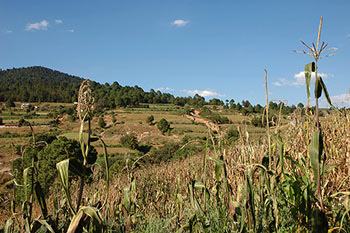Trajectories and Trade-offs (ATTIC) project
 Agricultural research has been developing technological alternatives for a long time, with different levels of adoption. Now we are convinced that it is not only about how better new technologies perform in relation to the current ones but also about the characteristics of farm households and their diversity in terms of time and space. MAIZE collaborates with Wageningen University on the Trajectories and Trade-offs for Intensification of Cereal-based Systems (ATTIC) project to better understand the trajectories of farming systems (are they in the trend of intensifying or extensifying? Passing from food to commercial cropping? Degrading or building up resources?) in order to better target technologies.
Agricultural research has been developing technological alternatives for a long time, with different levels of adoption. Now we are convinced that it is not only about how better new technologies perform in relation to the current ones but also about the characteristics of farm households and their diversity in terms of time and space. MAIZE collaborates with Wageningen University on the Trajectories and Trade-offs for Intensification of Cereal-based Systems (ATTIC) project to better understand the trajectories of farming systems (are they in the trend of intensifying or extensifying? Passing from food to commercial cropping? Degrading or building up resources?) in order to better target technologies.
It is also important to understand the spatial diversity of farming systems and their interaction with the landscape. Farmers contribute and benefit from landscape features (water flows, soils and slopes) and their farming systems take these dimensions into account. The ATTIC project also aims at understanding the landscape and relating it to the heterogeneity of farming systems and their trajectories.
Any decision will imply trade-offs between the multiple objectives pursued by the farm households (e.g. food vs. cash production, higher return to investment or return to labor, high productivity but low stability, etc.). These trade-offs can be greater or smaller depending on the characteristics of farming systems, their heterogeneity and distribution within the landscape, as well as their trajectories.
More on: The Farming Systems Ecology Group
